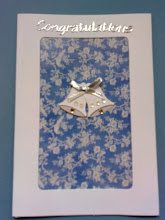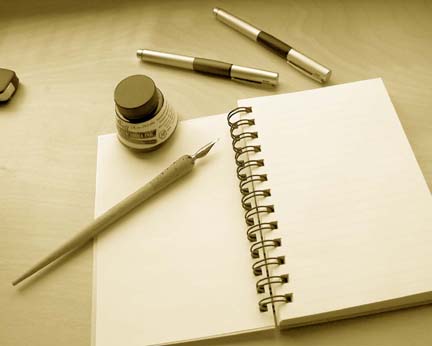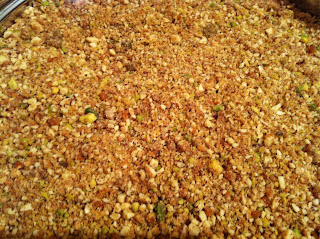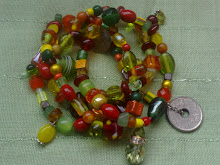
My parents and grandparents grew in Pakistan where it was the norm to be smacked by your parents, extended relations and anyone else that happened to be around and in a bad mood. It was also okay to be given a smack round the head for doing something you shouldn’t have, for watching someone else doing it, maybe for not stopping them or maybe again because someone was in a bad mood. In contrast, my parent’s generation has not quite realized that simply transferring the parenting methods of rural Punjab/Gujerat/Dhaka/Sylhett to East London might not be sufficient to bring up your child in the best possible manor – although this is not for want of trying (I have so many happy memories of being chased by my mum flip-flop held aloft).

There is also the thinking that a good child is an obedient child, smacked and yelled into submission to a parent who knows best. How do you tell that parent’s about feeling left out because you dress different, weighing up the way you feel about clothes, boys, life in general as a teenager with the need to please your parents and be a good Muslim? Who do you talk to about peer pressure, or bullying or all the other things that confuse kids?
This is not to denigrate my parents or all the others out there who have struggled to reconcile two cultures, their faith, modern life and all of the issues that face immigrants, with bringing up their child in the best way that they could. At the same time they have also had to try and square Western and Eastern concepts of what a well-brought up person is supposed to be like. Is it any wonder that they and we were so confused?
What we have to keep in mind though is whether the absence of smacking has left a vacuum with respect to disciplining our children. If we don’t smack, how do we get our children to listen to and respect us?
I love the Islamic concept that when we do things with the aim of pleasing Allah (SWT) we engage in ibadah (worship), even if they are just everyday actions. So cooking a meal is a chore, but cooking with the aim of pleasing Allah by feeding his creation and eating to take care of the body he gave you as an Amanah (trust) becomes an act of worship.
Similarly childrearing can be hard work, but when engaged in with the intention of pleasing Allah and carrying out the work he has assigned to us, it becomes an act of worship from beginning to end. The waking in the night, the cleaning of stuff that makes other people leave the room, the difficulties of breast-feeding, the tiredness, the duty to be mindful of what you say and do, having to constantly watch your little ones – living, breathing, walking, waking worship. Through our words, our soothing, our chores, all of the small kindnesses of a mother, Allah (SWT) elicits from us worship and forgives sins. With this thinking in mind, it becomes much harder to smack a child and much easier to take a breath and act rationally.
I also like the idea of peaceful parenting, less friction, more kindness. I like Sandra Dodd’s idea that it’s okay to indulge your children sometimes and say yes to them. We don’t have to behave like tyrants, its okay for the house to be a mess, for your kids not to be reading Shakespeare by six and joining Mensa by eight, its ok not to be perfect. Motherhood is a learning process; we are scared because we only get one chance with each of our children. But I realized sometime ago, thanks to Little Lady, that when we make a mistake, we can stop, apologise and agree to try again, that every day is a new day and a new chance at doing things in the best way we can.
So when we need to discipline our children, we could hit them, but how would it feel to make a mistake or disagree with our employers or spouse and be smacked for it? How do we prefer to be told? Discreetly, gently, with patience surely.
My parenting style? Like my parents, a little confused. When I ask nicely, explain and let things go, my sisters call me English mum, when I lose it and shout and issue orders, they call me Punjabi mum. I guess I am still learning.
Abu Salmah (RA) narrated that Abu Hurayrah (RA) said, "The Prophet of Allah (peace be upon him) kissed Hasan ibn 'Ali while Aqra' ibn Habis was sitting nearby. Aqra' said, 'I have ten children and have never kissed one of them.' The Prophet (Peace be upon him) looked at him and said, 'Those who show no mercy will be shown no mercy.'" ~Bukhari (No. 91) and Muslim
Narrated A’isha (RA) the Prophet (peace be upon him) said to me, "O A'isha, be gentle, for gentleness has never been used in anything without beautifying it; and it has never been removed from something without debasing it." ~ Abu Dawood
“Instead of saying "Come on, let's go!" maybe you could have picked him up and twirled him around and said something sweet and by the time he knows it he's fifty yards from there, but happy to be with his happy mom.” ~ Sandra Dodd
“What would be a better gift to our kids,...the aching urge to break free from the nest because theyr'e so confined and disciplined at home, or lots of freedom NOW so that that home is not something they want to push away. I don't know about all of you, but I want my kids to take their time leaving...my rejection of another hateful cliché that kids should be pushed out on their 18th birthday...phooey”. ~ Nancy (CelticFrau)
“We were all born with a drive to learn that is more compelling than almost any other instinct. If we step back from the power struggles we can be allies with our children in learning, solving problems and creating what John Holt called ‘a life worth living and work worth doing.’ Unschooling is deprogramming, healing, regenerating. It is remembering to relax and trust our own and our children's innate ability to choose ideas and activities that promote lifelong learning and growth.” ~ Luz Shosie


















 I pulled the roots for this mint from my favourite uncles garden last year and it took in a pot, but only just. So I have pulled it out and put it into the main border. By the end of the year the strawberries and mint will be at war to take over the whole garden. I've lightly crushed some coriander seeds and scattered them in the other border so in about two months time we should have plenty insh'Allah. I did this two years ago and the fresh coriander from the garden made every meal so fragrant. I've also planted potatoes (maris piper and charlotte varieties from the 99p store which is a no-brainer, so I'll see how they go). I have seeds for cayenne peppers, bell peppers, beans and sweetcorn, but have run out of place, so will have to be creative.
I pulled the roots for this mint from my favourite uncles garden last year and it took in a pot, but only just. So I have pulled it out and put it into the main border. By the end of the year the strawberries and mint will be at war to take over the whole garden. I've lightly crushed some coriander seeds and scattered them in the other border so in about two months time we should have plenty insh'Allah. I did this two years ago and the fresh coriander from the garden made every meal so fragrant. I've also planted potatoes (maris piper and charlotte varieties from the 99p store which is a no-brainer, so I'll see how they go). I have seeds for cayenne peppers, bell peppers, beans and sweetcorn, but have run out of place, so will have to be creative. 











 In comparison, to them, the idea of staying at home as a mother is something they had not envisaged. Even my mother who my dad didn’t want working outside the home, spent 20 years working at home as a machinist. This is not to denigrate those women who stay at home with their children at all, it’s just an affirmation for this who chose to take care of their children and work, whether through necessity or choice. Even many of those who do term themselves as stay-at-home mothers are busy with home-businesses, studies, community work or halaqa’s (Islamic study circles), after all our brains don’t suddenly switch off when we have children; our creativity and talents remain and our faith doesn’t say that we must lock them away. Nor do I intend to live through my children, I have my dreams, they have the right to theirs. The guilt seems to be not just because we leave our children, but because we want to do something for ourselves. Why do so many of us not think we deserve this?
In comparison, to them, the idea of staying at home as a mother is something they had not envisaged. Even my mother who my dad didn’t want working outside the home, spent 20 years working at home as a machinist. This is not to denigrate those women who stay at home with their children at all, it’s just an affirmation for this who chose to take care of their children and work, whether through necessity or choice. Even many of those who do term themselves as stay-at-home mothers are busy with home-businesses, studies, community work or halaqa’s (Islamic study circles), after all our brains don’t suddenly switch off when we have children; our creativity and talents remain and our faith doesn’t say that we must lock them away. Nor do I intend to live through my children, I have my dreams, they have the right to theirs. The guilt seems to be not just because we leave our children, but because we want to do something for ourselves. Why do so many of us not think we deserve this?










 It’s a city with such great strength of spirit. The 7/7 attacks happened in London on a Thursday and the city was back on its feet and back to work on the same tube system on Monday. No whinging, no shutting the place down, two-finger salute to the perpetrators and back to business. The
It’s a city with such great strength of spirit. The 7/7 attacks happened in London on a Thursday and the city was back on its feet and back to work on the same tube system on Monday. No whinging, no shutting the place down, two-finger salute to the perpetrators and back to business. The 
































